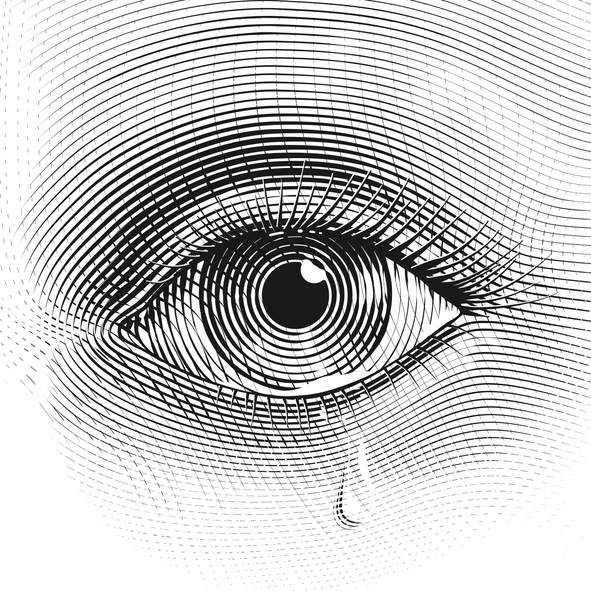Tears keep the eyes moist and lubricated, nourish the cornea, help you see clearly, and protect your eyes from infections and irritants like dust and dirt. But imagine going about your daily activities with constantly watery eyes that make it difficult to see. This is the problem that people who suffer from excessive tearing experience. Excessive tearing, also called epiphora, can turn a short walk outside or even sitting near air conditioning into an uncomfortable and frustrating challenge. The good news for those with this condition is that an ENT specialist or ophthalmologic surgeon can provide you with treatment options depending on the underlying cause of the problem. If you have this condition, you must understand its cause.
Causes of Excessive Tearing
- Dry Eyes: It may be surprising for most people that one of the most common causes of excessive tearing is dry eye syndrome. When your eyes are dry and irritated, your body may compensate by producing an overabundance of tears.
- Allergies: If you have allergies, exposure to these allergens can cause excessive tearing because the eyes will blink excessively in an attempt to flush out the allergens.
- Entropion: Entropion is an inversion or inward turning of the eyelid. When eyelids turn inward, your eyelashes and skin rub against your eyeball and may cause excessive tearing.
- Infections and Inflammations: Infections such as sore eyes or conjunctivitis may cause the eyes to respond in a protective way, leading to excessive tearing.
- Eye Injuries: The eyes are incredibly sensitive. Consequently, injuries to the eyes, even minor scratches, can cause excessive tearing.
- Blocked Tear Ducts: In the inner corner of the eyes are tiny ducts where tears usually drain. If these ducts are blocked or narrow, they will not drain properly, leading to overflow.
- Underlying Health Condition: Some health conditions can cause excessive tearing. Specifically, Bell’s Palsy and other thyroid disorders can impact tear production and cause excessive tearing.
- Age-related Changes: The muscles and tissues around your eyes weaken as you age. This can cause incomplete eye disclosure and changes in tear production.
Treatment Options for Excessive Tearing
If you are struggling with this problem, there are several treatment options available. Your chosen treatment for excessive tearing will depend on the underlying cause of your condition.
- Artificial Tears: Lubricating eyedrops or artificial tears can be used to maintain moisture on the surface of the eye and reduce irritation.
- Warm Compresses: Applying a warm compress can help unblock tear ducts and relieve symptoms of blepharitis or other inflammatory conditions.
- Allergy Eyedrops: If your specialist suspects that your allergies are responsible for your excessive tearing, they may prescribe allergy eyedrops. In addition, they may advise you to consult an ophthalmologist.
- Antibiotic Drops: If the underlying cause is infection, your ENT specialist may prescribe antibiotic drops to address the infection.
Surgical Procedures
If a blocked tear duct causes your excessive tearing, a surgical procedure called dacryocystorhinostomy may be necessary. This procedure creates a new drainage pathway for tears. Another instance where surgery is needed is when the eyelid turns outward or inward.
- Punctal Plug: If dry eyes cause excessive tearing, punctual plugs can be inserted into the tear ducts. This will prevent the tears from draining too quickly and keep your eyes moist.
- Eye Protection: Wearing sunglasses can help protect your eyes from wind, dust, and other environmental irritants.
How to Prevent Excessive Tearing
Although not all excessive tearing can be prevented, there are steps you can take to minimize your risk.
- Remove your eye makeup at night. Makeup debris can build up and cause eye irritation.
- Wash your hands, especially before touching your eyes.
- Follow all care instructions for your contacts and only touch them with clean hands.
- Make sure your hands are clean before touching your eyes.
- Avoid sharing towels, makeup, or medicated eye drops to prevent bacteria from spreading.
In summary, you must practice hygiene to ensure you do not cause or exacerbate your excessive tearing.
Say Goodbye to Excessive Tearing
Excessive tearing can be inconvenient and uncomfortable and may even lead to unsightly crusty eyelids. If you want to say goodbye to this condition, consult a specialist today. If you notice that your eyelids turn inwards or outwards, seek the help of an oculoplastic surgeon who can perform the necessary surgery that will address your problem.

